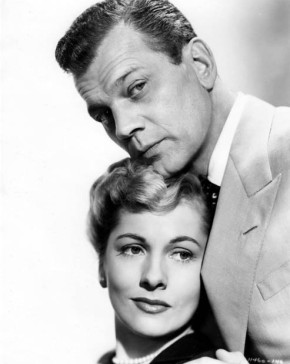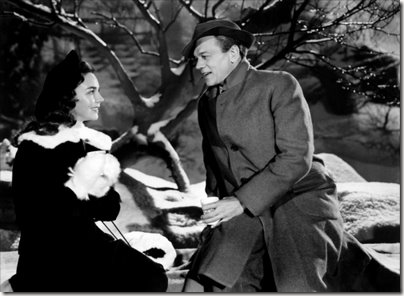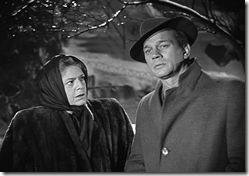September Affair (1950)
Last week I watched a movie that’s been on my to-watch list for a while now, September Affair starring Joan Fontaine and Joseph Cotten, directed by William Dieterle. Fontaine plays a concert pianist on her way to New York from Florence, Italy to give her first big performance. Cotten is a successful engineer who’s in an unhappy marriage and came to Florence alone to try and figure out where his life is going. When the plane they’re on has to land in Naples for a repair, they spend a few hours exploring the city together. Then when they miss the plane, they decide to be “unconventional” and stay on together for a few more days as tourists and friends, exploring Naples, Pompeii, and Capri.
During those days they fall in love. When they read in the paper that the plane they missed crashed and they’re presumed dead, they decide to escape their pasts and make a new life together in Italy. Of course that new life is based on deceit and selfishness, so how can their love last? 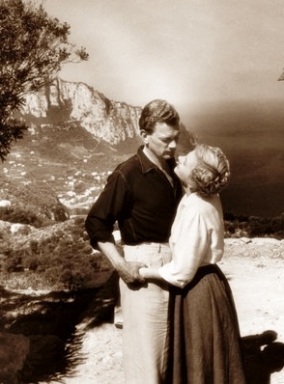
It’s hard to ever feel good about the couple’s newfound happiness since it’s founded in the unhappiness of others, most particularly that of Cotten’s wife and teenaged son. The movie doesn’t shy away from the questionable nature of their choices or give the characters a free pass when it comes to their behavior, even though they’re both likeable people and you can’t help wishing they could be together. The one person who knows the pair is still alive is Fontaine’s piano teacher in Florence, portrayed by Françoise Rosay. Rosay says and feels all the things I felt as a viewer watching the film. She’s sympathetic with the lovers to a point, but also deeply uncomfortable about the decision they’ve made and its effects on other people.
Joseph Cotten is one of my favorite actors and he’s really good in this. We can sense how disconnected his character has become from his family and his work, allowing us to understand why he’d snatch at the first thing that’s made him feel alive in years, regardless of the consequences.
Joan Fontaine has grown on me a lot in the past few years too as I’ve seen more and more of her movies, like Letter to an Unknown Woman and The Constant Nymph. She’s lovely in September Affair, showing us a woman of intelligence and talent who struggles between what her heart wants and what she knows is right.
Jessica Tandy has a supporting role as Cotten’s wife, a woman who comes across as a decent and understanding sort of person, making her husband abandoning his family even more disconcerting.
The movie’s music is wonderful. Rachmaninoff’s 2nd piano concerto is featured, as is the 1930s version of “September Song” sung by Walter Huston. You can hear it in this YouTube video, and it’s very touching.
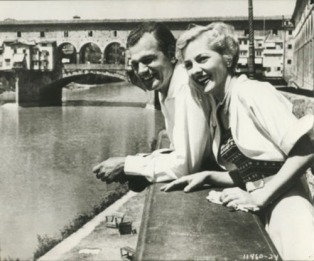 It’s a nice film to look at. There’s just something special about Italy in the ’50s. Cotten and Fontaine wander through a country that’s romantic and beautiful, but with a certain post-war grittiness still apparent. Florence, Naples, Pompeii and Capri all look great, though it would’ve been nice to see them in color instead of black and white — especially when they visit the Blue Grotto.
It’s a nice film to look at. There’s just something special about Italy in the ’50s. Cotten and Fontaine wander through a country that’s romantic and beautiful, but with a certain post-war grittiness still apparent. Florence, Naples, Pompeii and Capri all look great, though it would’ve been nice to see them in color instead of black and white — especially when they visit the Blue Grotto.
The costumes by Edith Head are pretty, with shades of what was to come in Audrey Hepburn’s Roman Holiday wardrobe a few years later appearing in Joan Fontaine’s white blouses, full skirts with itty-bitty belted waists, and summery sandals.
It’s too bad the movie isn’t out on DVD, because it’s a good romantic tearjerker along the lines of Summertime, Now Voyager, and Brief Encounter. However, it’s available for streaming on Amazon Prime and on Netflix and is well worth checking out if you have access to one of those.

